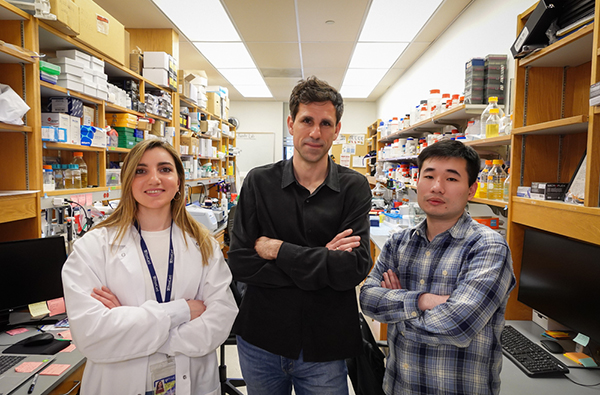
From left to right: Angela Cesaro, César de la Fuente and Fangping Wan (Image: Jianing Bai)
Artificial intelligence algorithms have now been combined with traditional laboratory methods to uncover promising drug leads against human enterovirus 71 (EV71), the pathogen behind most cases of hand, foot, and mouth disease. The study, published on April 29 in Cell Reports Physical Science by researchers at the Perelman School of Medicine, showed that reliable antiviral predictions can be made even when only a modest amount of experimental data are available.
Using an initial panel of 36 small molecules, the investigators trained a machine learning model to spot certain shapes and chemical features that help stop viruses, scoring each compound’s likelihood of blocking EV71. The authors put their AI-chosen shortlist to the test: Out of eight compounds, five successfully slowed the virus in cell experiments—about 10 times more hits than traditional screening methods usually deliver.
“We are collapsing what used to be months of trial‑and‑error into days,” says César de la Fuente, a Presidential Associate Professor in the Department of Psychiatry at the School of Medicine with secondary appointments in the School of Engineering and Applied Science and the School of Arts & Sciences. “The approach is especially powerful when time, budget or other constraints limit the amount of data you can generate up front.”
